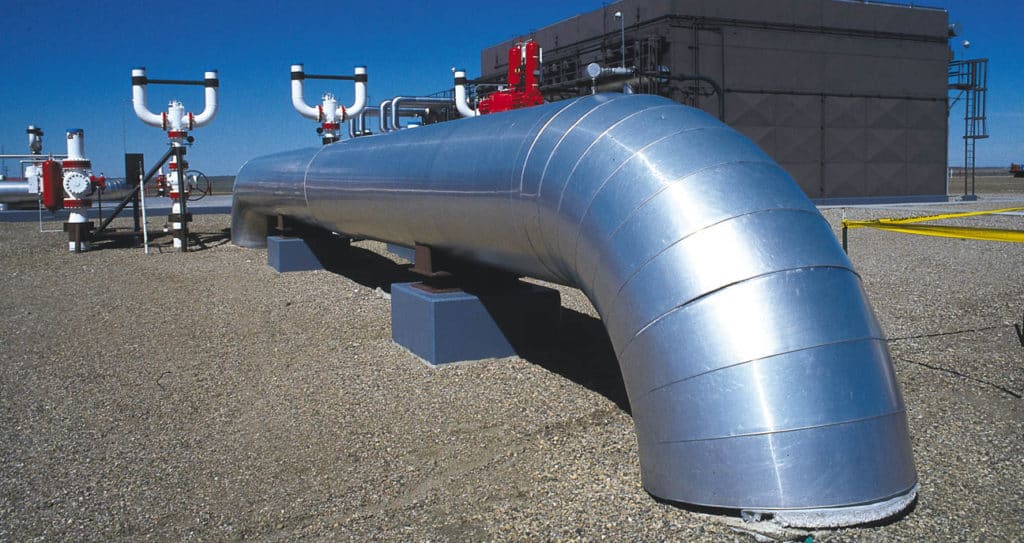
SUBHEAD:
No New Pipelines in the Pipeline
By Dan Murphy
New York State responded to Con Edison’s natural gas moratorium that went into effect March 15 by funneling $250 million in Green Energy Grants to Westchester County, which will help ease the demand on natural gas but provides no help in increasing the supply to Westchester County – which is now in the unfortunate situation of not having a natural gas energy supply available to anyone who wants to build a new home, new school, new apartment building or new commercial structures.
“The moratorium will still go into effect after March 15,” said Con Edison spokesman Allan Drury, explaining that there is not enough natural gas coming into Westchester to avoid providing existing customers with their energy needs while at the same time providing energy to new customers, due to limited space in existing pipelines that bring natural gas into the county.
The number of applicants for new gas connections in Westchester skyrocketed in the 60 days since Con Ed announced the moratorium in January, with more than 1,300 new hookups requested, well above the average two-month request.
The expedited, new state green grant program is run through the New York State Energy Research and Development Authority and the New York Power Authority. Called the Westchester Clean Energy Action Plan, the hope is it will “provide immediate relief to Westchester County businesses and residents affected by the Con Edison announcement that it will put new applications for firm natural gas service on a waiting list beginning March 15.”
As the state and the Department of Public Service “reviews Con Edison’s claims of shortage in natural gas supply, the state is advancing a $250 million Westchester Clean Energy Investment Program to provide local investment in clean energy alternatives such as electric heat pumps, high-efficiency appliances, equipment and building materials that will lower energy costs for consumers and reduce demand in order to accommodate new customers,” wrote NYSERDA in a press release.
The $250 million Westchester Clean Energy Investment Program includes $165 million in grants from the Smart Solutions package that the Public Service Commission recently directed Con Edison to deploy toward heat pumps and increasing gas efficiency for residential, multifamily and commercial and industrial customers; an additional $53 million in clean energy incentives and investments that NYSERDA will provide to Westchester customers; $28 million in grants for new customers, including low-to-moderate residential developments waitlisted by Con Edison for natural gas to use alternative heating and cooling systems and adopt energy efficient solutions, and $25 million in grants to improve energy efficiency in Westchester and reduce overall and peak energy demand from existing customers in the region to free up capacity; and an additional $32 million in low-cost NYPA financing services for Westchester customers to retrofit heating systems with clean energy alternatives.
NYSERDA estimates that the grants will reduce energy consumption equivalent to the amount of gas needed to heat more than 90,000 homes.
Senate Majority Leader Andrea Stewart-Cousins added: “Utilizing state funds to invest in clean energy and higher-efficiency equipment is a common-sense way to improve New Yorkers’ quality of life and combat climate change. I am especially pleased that funds are being set aside to help Westchester energy consumers who will be impacted by Con Edison’s actions. I will continue to work with my colleagues in local government, Gov. Cuomo, and the State Legislature to support Westchester County residents and businesses.”
Assemblywoman Amy Paulin said the State’s Westchester Clean Energy Action Plan is a good first step in providing consumers with immediate options and clean energy solutions to heat their homes more affordably. “The recently announced moratorium on new natural gas service in Westchester County underlined the need for urgent, creative solutions for expediting our clean energy future,” she said. “We must collectively come together to advance the clean energy economy in a way that protects both our communities and our environment.
Senator Shelley Mayer added: “The action taken today by NYSERDA, DPS and NYPA sends a strong message that protecting the environmental and economic security of Westchester County and our residents is a priority for New York State. I look forward to working with our government partners at all levels to reduce the energy burden for our hard-working families.”
Assemblyman Steve Otis, said, “This is important assistance from Governor Cuomo and our state energy agencies to provide state grants and expertise to gas customers who want to convert to alternative energy sources. The PSC will continue to analyze Con Ed’s capacity issue. We need to encourage large users, businesses, schools and governments to become more energy efficient and reduce their reliance on natural gas. The program will include assistance directly to homeowners, as well. The governor and his team have been very responsive to our needs in Westchester on this issue.”
Assemblyman Nader Sayegh said he appreciates the efforts and the commitment by Cuomo’s administration to address these matters of serious concern to the City of Yonkers and Westchester County. “The Con Edison moratorium would have a tremendously negative impact on development in the City of Yonkers,” he said. “The state’s initiative and funding to support residential and commercial customers impacted by the moratorium is a step in the right direction. I hope our collaborative efforts will enable us to find a long-term solution to this urgent matter.”
As part of an independent review launched after Con Edison’s announcement, the PSC held two public hearings in White Plains to elicit comment from the public and impacted stakeholders. NYSERDA will also sponsor sustainable and clean energy community workshops in Westchester, beginning April 24 with a workshop in Tarrytown in collaboration with Westchester County. NYSERDA will also provide free screening for electrification options for large customers and expand contractor training in the area.
“We said in January that the March 15 deadline was far too soon, and now we see just how quick it was,” said Latimer. “We asked for an extension – which we did not get – but we are still continuing to work to protect the residents of this county and protect the development which is so vital for all of us. We have an obligation as the county government to respond to this and continue to fight. We are still working with the municipalities that are impacted by this moratorium – we are keeping them informed and helping them get the resources they need to manage the projects that are at risk.
“Westchester County already has many of its buildings on interruptible gas systems to help reduce peak demand on cold days. We continue to explore how the county can reduce our energy usage and meet our energy demand through clean alternatives. The county is also planning to install solar panels on nine county buildings – including the Westchester County Airport, the Westchester County Court House, the bus depot in Yonkers, bus depot in Valhalla and a parking garage in Valhalla. I still believe that working with the governor’s office and our municipal government partners, we can find a path to work through this.”
Several elected officials quoted above, and state government energy groups have questioned the legitimacy of Con Edison’s claim, that to provide gas to more customers and maintain system reliability it needs more interstate pipelines and storage facilities, in addition to the programs just announced to reduce demand. The NYSERDA programs announced will reduce demand, but do not address the other question: Will any elected official in Westchester and in New York State call for an advocate for additional natural gas pipelines?
While energy companies have continued to propose building natural gas pipelines from Pennsylvania and the Marcellus Shale Formation, New York State, have blocked the construction of new interstate pipelines for environmental reasons for years as Cuomo and other state officials want utilities to focus more on renewable power sources and energy efficiency programs, instead of building more gas and other fossil fuel-fired power plants and infrastructure and pipelines.
Another reason for increased demand of natural gas in Westchester and across the state and the country is it’s cheaper to heat your home in the winter with natural gas than with oil. Federal estimates have the winter cost in the northeast to heat your home at $723 with natural gas, and $1,646 with oil.





